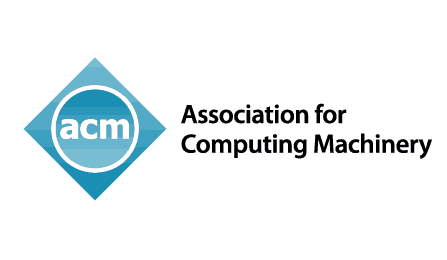The Association for Computing Machinery (ACM) stands as a cornerstone in the computing field, dedicated to advancing the arts, sciences, and applications of information technology. As a global academic and professional society, it offers invaluable resources including peer-reviewed publications, conferences, and an extensive digital library.
In this article:
- What is ACM?
- Existence and Foundation
- Importance and Contributions
- Evolution and Current Endeavors
- The Special Interest Group on Data Communication (SIGCOMM)
- References

1. What is ACM (Association for Computing Machinery)?
Association for Computing Machinery (ACM) is the oldest and largest educational and scientific computing society in the world. The Association for Computing Machinery (ACM) provides a forum for the exchange of information, ideas, and discoveries relating to many aspects of computing.
The ACM has a worldwide membership of 80,000 computer professionals representing a wide variety of interests. The ACM also sponsors a number of special interest groups (SIGs) that bring together ACM members with shared interests. These SIGs publish technical newsletters, host conferences, and help develop standards.
2. Existence and Foundation
The Association for Computing Machinery (ACM) was established on September 15, 1947, by a group of pioneering computer scientists and mathematicians including Richard Hamming, Harry Huskey, and John Mauchly, among others. The founding of ACM was a response to the burgeoning interest in computers and represented a desire to create a collective that would promote the exchange of ideas and advancements in the field of computing.
In its nascent stages, ACM focused on the practical aspects of computing, aiming to bring together computing machinery operators and users to share expertise and tackle common challenges. This focus has expanded over the years, with ACM playing a significant role in shaping the academic and professional worlds of computing.
3. Importance and Contributions
ACM’s significance in the computing industry is multi-faceted. It has been instrumental in fostering innovation through its myriad conferences, publications, and by offering members access to its comprehensive digital library.
One of ACM’s most notable contributions is its system of awards which recognizes exceptional achievements in computing and information technology. These include:
- The ACM A.M. Turing Award: Often regarded as the “Nobel Prize of Computing,” it honors individuals who have made substantial contributions of lasting importance to computing.
- The ACM Prize in Computing: Awarded to early to mid-career professionals, this prize celebrates significant contributions that propel the computing field forward.
- The Grace Murray Hopper Award: This accolade is given to the outstanding young computer professionals of the year, acknowledging singular impacts made by individuals at the start of their careers.
Through these awards and its other initiatives, ACM has continually celebrated and encouraged excellence, innovation, and hard work within the computing discipline, thereby contributing significantly to the advancement and application of computer science and information technology across the globe.
4. Evolution and Current Endeavors
Over the decades, ACM has evolved significantly, adapting to the explosive growth and transformation of computing technologies. In recent years, ACM has made substantial contributions to computer science, particularly in the areas of open access to scholarly research, the establishment of ethical standards for artificial intelligence, and the promotion of diversity and inclusion within the field.
ACM’s commitment to open access is evident through its Author-Izer service, which allows authors to generate and post links on their homepage or institutional repositories for free downloads of their work, thus enhancing the dissemination of research. Moreover, ACM has been proactive in addressing the ethical implications of AI through various panels and publications, aiming to establish a framework that promotes responsible AI development and use.
The organization also focuses on education by providing resources and curricula guidelines for computer science education at all levels, influencing how the subject is taught worldwide. Furthermore, ACM’s efforts to support diversity in tech are exemplified by initiatives such as the ACM-W, which supports women in computing.
5. The Special Interest Group on Data Communication (SIGCOMM)
ACM’s Special Interest Group on Data Communication (SIGCOMM) plays a crucial role within the ACM ecosystem. SIGCOMM’s mission is to foster growth and innovation in the area of data communication networks. It’s an influential community where researchers and professionals share findings on network architectures, protocols, systems, and services.
SIGCOMM organizes prominent conferences like the annual ACM SIGCOMM conference, which is considered one of the leading venues for presenting developments in networking and communication technologies. Furthermore, SIGCOMM sponsors various workshops, symposiums, and provides a multitude of resources for professionals, including a highly-regarded publication, the ACM SIGCOMM Computer Communication Review (CCR).
See also: Institute of Electrical and Electronics Engineers (IEEE)
6. References
- ACM Digital Library: https://dl.acm.org/
- ACM Author-Izer Service: https://www.acm.org/publications/author-izer-service
- ACM Code of Ethics and Professional Conduct: https://www.acm.org/code-of-ethics
- ACM Special Interest Groups: https://www.acm.org/special-interest-groups
- ACM SIGCOMM: https://www.sigcomm.org/
- ACM-W: Women in Computing: https://women.acm.org/
- ACM Turing Award: https://amturing.acm.org/